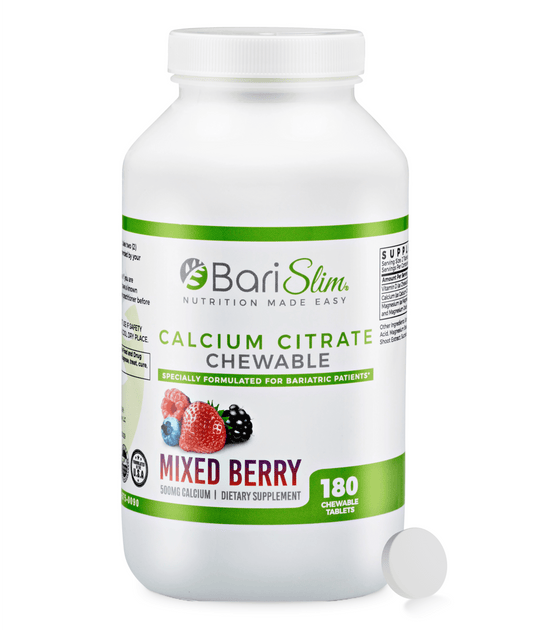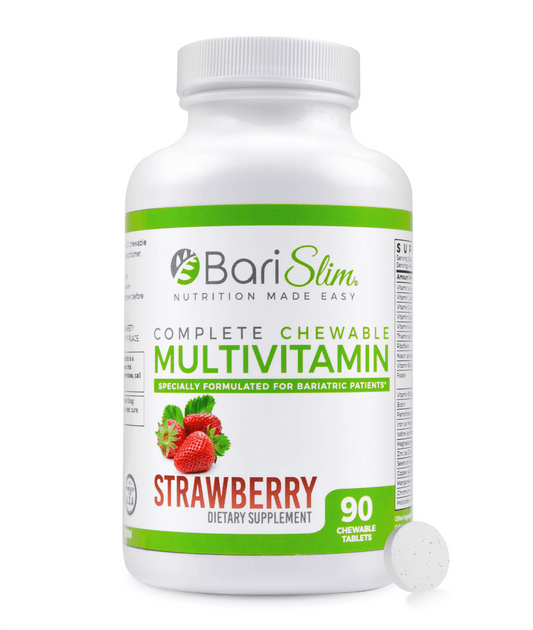Table of Contents
- Key Takeaways
- How Long Does Bariatric Surgery Take?
- Preparation
- Surgery Duration
- Recovery
- Different Bariatric Surgery Durations: Preparation, Operation, and Recovery Times
- Adjustable Gastric Band (AGB) Surgery
- Vertical Sleeve Gastrectomy (VSG) Surgery
- Gastric Balloon Surgery
- Endoscopic Sleeve Gastroplasty (ESG) Surgery
- Roux-en-Y Gastric Bypass (RYGB) Surgery
- Biliopancreatic Diversion (BPD) Surgery
- Biliopancreatic Diversion with Duodenal Switch (BPD-DS) Surgery
- Stomach Intestinal Pylorus Sparing Surgery (SIPS) Surgery
- Single Anastomosis Duodeno-Ileal Bypass with Sleeve Gastrectomy (SADI-S) Surgery
- What Can Impact Recovery Time?
- Which Bariatric Surgery Has The Shortest Recovery Time?
Introduction
Bariatric surgery has become an increasingly popular option for individuals seeking significant weight loss and an improvement in their overall health. As with any major surgery, it's natural to have questions about the procedure, such as how long it takes to complete the operation itself. Understanding the duration of bariatric surgery is essential in making informed decisions about your health journey.
Various factors determine the length of bariatric surgery, including the type of procedure being performed and the individual patient's health. Knowing what to expect can help you better prepare for the surgery and address any concerns you may have about the time commitment involved in this life-changing decision.
Key Takeaways
- Bariatric surgery duration varies depending on the procedure and the patient's health.
- Understanding the length of surgery can help you make informed decisions.
- Knowing what to expect helps in better preparation for your health journey.
How Long Does Bariatric Surgery Take?
Preparation
Before your bariatric surgery, you will go through a preparation phase that usually takes several weeks to months. This timeframe varies depending on your specific needs and the requirements of your surgeon. During this period, you will work closely with your healthcare team to create a tailored plan for your weight loss journey. This may involve developing new dietary habits, starting an exercise routine, and attending counseling sessions.
Your surgeon may also prescribe specific medications to support your weight loss efforts, and you will undergo various tests to ensure you're a suitable candidate for the surgery. Lastly, you will receive instructions on how to prepare for the surgery, including any fasting requirements and necessary adjustments to your medications.
Surgery Duration

The actual duration of bariatric surgery varies depending on the type of procedure being performed, such as gastric bypass surgery, sleeve gastrectomy, or adjustable gastric banding. Most surgeries are done laparoscopically, which means that the surgeon makes several small incisions and uses a laparoscope, a thin tube with a camera, to complete the procedure. On average, the surgery itself may take anywhere from 1 to 3 hours.
Recovery
Recovery after bariatric surgery begins immediately with the administration of pain medication and monitoring for complications like infection, wound leaks, or issues related to anesthesia. You may experience nausea and vomiting, but these should subside within the first few days.
The hospital stay varies depending on the specific surgery and your individual response to the procedure. Most patients are discharged within 2 to 4 days after their surgery. Once home, you will need to follow your surgeon's specific instructions for wound care, taking medications, and adhering to dietary guidelines.
In the early weeks following surgery, you will progress through a series of dietary stages, starting with clear liquids, moving to pureed foods, and eventually incorporating soft and solid foods. Each stage is designed to help your body adjust to its new digestive capacities.
During the first month, your activity level may be limited. It is important to gradually increase physical activity in consultation with your healthcare team. Full recovery and a return to normal daily activities can take anywhere from 6 weeks to several months, depending on your individual progress.
As you adjust to your new lifestyle, you will continue working with your healthcare team to ensure long-term success in reaching your weight loss goals and maintaining a healthy lifestyle. This may include ongoing support from professionals like dietitians, exercise specialists, and mental health counselors.
Different Bariatric Surgery Durations: Preparation, Operation, and Recovery Times

Adjustable Gastric Band (AGB) Surgery
Preparation for AGB surgery can take a few weeks, including initial consultation, psychological evaluation, and nutrition counseling. The operation itself typically takes about one hour, and you should expect 1-2 days of hospital stay. Recovery time varies from person to person, but in general, it takes 2-4 weeks for a return to normal activities.
Vertical Sleeve Gastrectomy (VSG) Surgery
When preparing for VSG surgery, you may undergo a similar timeline as AGB, with a few weeks of preoperative consultations, evaluations, and nutrition counseling. The surgery generally takes 60-90 minutes, and the hospital stay is usually 2-3 days. Recovery time is often 3-6 weeks, depending on your overall health and progress.
Gastric Balloon Surgery
Preparation for gastric balloon surgery includes consultations, evaluations, and education on nutrition and lifestyle changes. The procedure can take 20-30 minutes, and you may leave the hospital the same day or stay for 24 hours. The recovery period generally takes 1-2 weeks before resuming regular activities.
Endoscopic Sleeve Gastroplasty (ESG) Surgery
For ESG surgery, preparation may include consultations, psychology evaluations, and nutritional counseling. The procedure usually lasts 60-90 minutes and requires an overnight hospital stay. Recovery varies, but most people return to work within 1-2 weeks.
Roux-en-Y Gastric Bypass (RYGB) Surgery
The preparation phase for RYGB surgery includes consultations, evaluations, and nutrition education, which takes a few weeks. The surgery can take 1-3 hours, while the hospital stay is typically 2-5 days. Recovery time generally lasts 4-6 weeks before returning to normal activities.
Biliopancreatic Diversion (BPD) Surgery
Preparing for BPD surgery may take a few weeks, including consultations, evaluations, and nutrition counseling. The surgery generally takes 3-5 hours, and the hospital stay is 5-7 days. Recovery times vary but expect to return to normal activities within 6-8 weeks.
Biliopancreatic Diversion with Duodenal Switch (BPD-DS) Surgery
If you will undergo BPD-DS surgery, preparation includes consultations, evaluations, nutrition counseling, and vitamin/mineral supplementation. The surgery can take 4-6 hours, with a hospital stay lasting 5-7 days. Your recovery time can range from 6-8 weeks.
Stomach Intestinal Pylorus Sparing Surgery (SIPS) Surgery
For SIPS surgery, the preparation phase involves consultations, evaluations, and nutrition counseling, lasting a few weeks. The surgery usually takes between 1-3 hours, with a hospital stay of 2-5 days. Recovery may take 4-6 weeks before resuming normal activities.
Single Anastomosis Duodeno-Ileal Bypass with Sleeve Gastrectomy (SADI-S) Surgery
To prepare for SADI-S surgery, expect a few weeks of preoperative consultations, evaluations, and nutrition counseling. The operation generally takes 2-3 hours, and you should anticipate a hospital stay of 2-3 days. The recovery period varies but often lasts 4-6 weeks before returning to your usual activities.
What Can Impact Recovery Time?

Several factors can impact your recovery time after bariatric surgery. Each person's experience varies, but understanding factors that may influence outcomes can help you anticipate and prepare for this phase of your weight loss journey.
Surgeons and surgical techniques: The skill and experience of your bariatric surgeon can affect recovery time. Surgeons with specialized expertise often perform more precise procedures, which may involve smaller incisions that lead to shorter recovery times. Types of bariatric surgery, such as laparoscopic procedures that use thin instruments and cameras, typically result in faster recovery times than open surgeries.
Pre-existing health conditions: If you have obesity-related health problems like diabetes, high blood pressure, or heart disease, these factors can potentially prolong your recovery time. It is essential to work closely with your healthcare team to manage these conditions before the surgery and during your recovery.
Post-operative complications: In some cases, complications such as infections, leaks, or blood clots may occur after bariatric surgery. These complications may require additional medical intervention, which could extend your recovery time.
Nutrition and lifestyle changes: Proper nutrition and adherence to your surgeon's dietary guidelines will be crucial in your recovery. You will need to consume liquids and specific nutrients to support your healing, maintain energy levels, and avoid complications like malnutrition or vitamin deficiencies. Lifestyle changes, like engaging in physical activity and managing stress, can also positively impact your recovery time.
Medications and supplements: Taking medications or supplements as prescribed by your doctor can affect the healing process. Pain medications, anti-nausea medicines, and nutrients like calcium, vitamins, and minerals are essential to your recovery and overall health.
In conclusion, recovery time after bariatric surgery varies and can be influenced by several factors. It is important to communicate openly with your healthcare team and follow their recommendations to ensure the best possible recovery.
Which Bariatric Surgery Has The Shortest Recovery Time?

When considering bariatric surgery for weight loss, it's important to know the recovery times for different procedures. Generally, bariatric surgeries that use smaller incisions and are less invasive have shorter recovery times.
Sleeve Gastrectomy, also known as gastric sleeve surgery, is one of these less invasive procedures. In this surgery, a large portion of your stomach is removed, leaving a smaller "sleeve" that restricts food intake and makes you feel full sooner. The surgery is performed using a laparoscope, which requires small incisions, resulting in a faster healing process. You can expect to return to normal activities within 2 to 4 weeks after the surgery.
Gastric Bypass Surgery, like the Roux-en-Y procedure, is where a small stomach pouch is created, and the surgeon connects it to the small intestine. This method not only restricts food intake but also reduces calorie absorption by bypassing a portion of the small intestine. Although more complex than sleeve gastrectomy, gastric bypass surgery is also performed laparoscopically, which contributes to a relatively short recovery time. Generally, you can resume normal activities 4 to 6 weeks after the surgery.
In summary, both sleeve gastrectomy and gastric bypass surgery involve the use of small incisions and laparoscopic techniques, leading to shorter recovery times compared to more invasive procedures. It is crucial to consult with your healthcare provider to determine the most suitable bariatric surgery for your individual circumstances and weight loss goals.
Also Read: Is Bariatric Surgery Painful? (9 Potential Post-Op Pains)



 Order Free Sample
Order Free Sample





